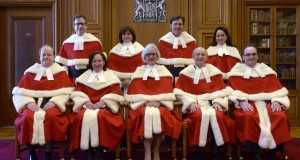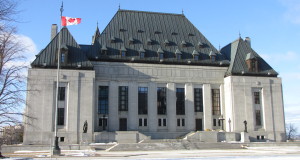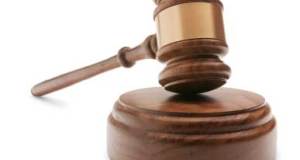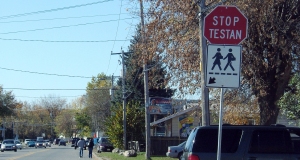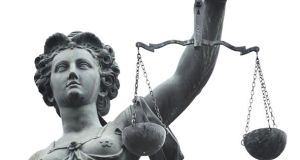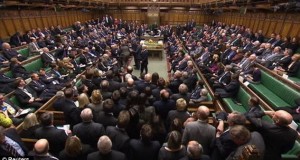Is there any real distinction between the phrases “from the Bar” and “from among the advocates”? According to two recent Supreme Court of Canada decisions, the answer to that question must be an emphatic “yes”. The first decision is well-known to the legal community and to the public as a whole. In Reference re Supreme Court Act, ss. 5 and ...
Read More »Author Archives: Asher Honickman
The Right to Strike Should Not Be a “Fundamental Freedom”
Last week, the Supreme Court of Canada released what is arguably its most troubling decision of the 21st century. In Saskatchewan Federation of Labour v. Saskatchewan, a 5-2 majority of the Court held that there is a constitutional right to strike, even for certain services that the government deems essential. In putting forth this ruling, our highest court has removed ...
Read More »Canada’s Blasphemy Law Should Be Repealed
In the wake of the terrorist attacks in Paris, freedom of expression is coming back to centre stage. This week, the National Post reported that Humanist Canada and Centre for Inquiry- two organizations dedicated to promoting secularism – will ask the Department of Justice to abolish section 296 of the Criminal Code, which prohibits “blasphemous libel.” Section 296 was enacted well ...
Read More »A Questionable Ruling on Aboriginal Rights
As has been widely reported, an Ontario court has ruled that native parents have a right to deny their children life-saving medical treatment. The case of Hamilton Health Sciences Corporation v. D.H. concerned an 11-year-old child, J.J., who was diagnosed with leukemia in August 2014. Her treatment team determined that she had a 90%-95% chance of being cured with chemotherapy, ...
Read More »The Vital Importance of Due Process
What do Hewlett Packard and MP Scott Andrews have in common? As Conrad Black writes in today’s National Post, both are being denied their right to due process. In Lord Black’s opinion, the penalizing of Canadian corporations for their alleged (but unproven) conduct in other countries and the allegations of sexual harassment being levelled against MPs are all part of the ...
Read More »Lawsuit Claims Individual Rights Trump Cultural Preservation
Seven members of the Kahnawake Mohawk band have brought a lawsuit, alleging that they were evicted from their homes on the reserve for having married non-natives. The plaintiffs each claim damages of $50,000 and also seek a declaration that “non Native spouses are entitled to reside within Kahnawake with their spouses and children, and that the children retain native status ...
Read More »Contingency Fees and the Rule of Law
In today’s The Hill, Professor Lester Brickman discusses the class action lawsuit brought against BP in respect of the 2010 oil spill. Professor Brickman argues that the BP suit is representative of a larger trend in American class action litigation whereby the plaintiffs’ lawyers are hired on a contingency fee basis and end up reaping enormous sums from the settlement. ...
Read More »Looking for Rights in the All the Wrong Places: A Troubling Decision from the Supreme Court
Earlier this month this Supreme Court of Canada held that there is a blanket constitutional right to access the civil courts. The decision in Trial Lawyers Association of British Columbia v. British Columbia (Attorney General) did not make huge headlines when it was released on October 2, but it probably should have. The Supreme Court has done something truly unprecedented in ...
Read More »More MPs Means Fewer Trained Seals
This article originally appeared in Huffington Post Canada When the Conservatives were in opposition, they frequently chastised the governing Liberals for ruling their backbencher MPs with an iron fist. Most if not all votes were whipped, which meant that, in a majority government, the position of the Prime Minister and his inner Cabinet invariably became the law of the ...
Read More »Court Confirms Two Years Means Two Years
Mr. Justice Bielby of the Ontario Superior Court of Justice in Guelph has confirmed that the Limitations Act, 2002 means what it says. In Slack v. Bednar, the plaintiff suffered a spinal fracture in a ski accident and required surgery. The accident occurred on March 18, 2006 surgery was performed nine days later on March 27. During the course of ...
Read More » Advocates for the Rule of Law
Advocates for the Rule of Law
